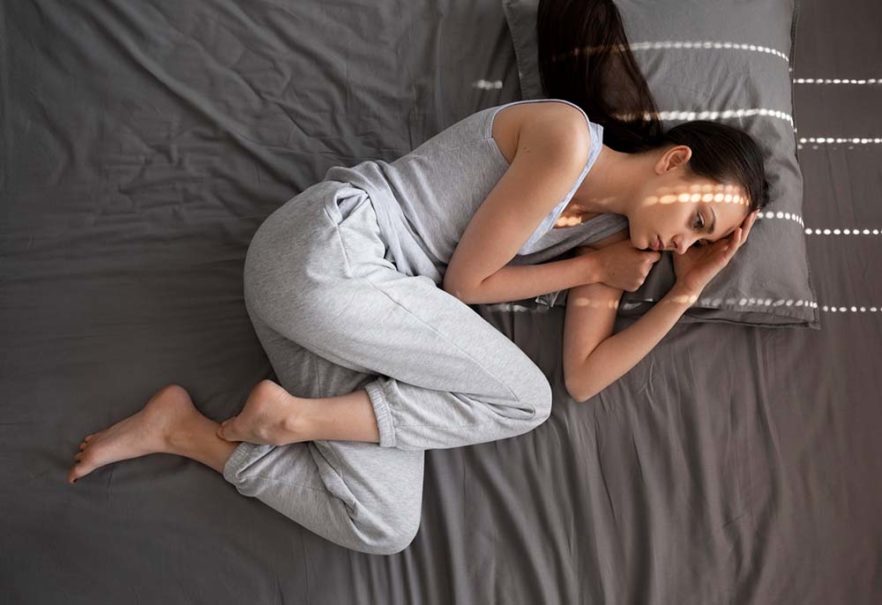Depression Signs & Symptoms: How to Cope with Bad Mood
It’s not unusual to hear people you know say, “I’m depressed” on a dailybasis. You may be guilty of the same. Depression is used too loosely these days. People tend to take for granted that depression is, in fact, a disease.
What is Depression?
A recent report by the British Psychological Society presents a new way of defining depression. The report proposes, “It is a human experience as individual and as complex as other human experiences” [1].
Knowing that depressive disorders rank in the Top 10 Global Burden of Disease (GDB) must change your perspective. The 2019 release reports that depressive disorders are the Top 6 causes of Disability Adjusted Life Years (DALY) among adults, 25 to 49 years old. During the same period, self-harm was the Top 3 cause of DALY among teens and young adults, 10 to 24 years old [2].
The World Health Organization defines DALY as, “the loss of the equivalent of one year of full health” [3]. Anxiety and depression are non-fatal disorders contributing the greatest impact to the GDB.
Depression is one of several affective disorders. It is a mental health condition that involves dramatic changes to the mood of the person affected. In turn, intense mood changes influence their mind, feeling, and behavior. Depression can vary according to severity, persistence, duration, and impaired functioning.
What Causes Depression?
There are several factors that may drive a person to depression. These can be classified to be either biological, psychological, or social [4].
- Biological factors. This includes inherited characteristics that affect brain functioning. It can also be a gamut of health conditions that destroy complex brain pathways.
- Psychological factors. This relates to individual experiences, personality, and ways of coping with depressing events.
- Social factors. This relates to drivers such as unemployment, experience of violence or conflict, and substance misuse.
Depression: Tell-Tale Signs
The WHO estimates that 800,000 people die of suicide each year due to depression [5]. It cannot be stressed enough how important it is to seek professional help if there’s any reason to believe you or your loved one may be going through depression.
Here are some of the most common signs and symptoms of depression [4]:
- Loss of satisfaction in doing activities that were once satisfying or pleasurable
- Sudden weight gain or weight loss
- Constant feeling of fatigue and lack of energy
- Lack of focus
- Having thoughts of harming oneself
- Feelings of being unworthy or guilty
- Sleeplessness
- Lack of self-care or hygiene
Depression requires clinical diagnosis. The person affected must be examined by a practitioner face-to-face to qualify this condition.
Depression leads to manifestations of physical illness, often chronic and irreversible. Some of the well-known ill health effects of depression are as follows:
- Obesity
- Cardiovascular diseases
- Diabetes
Many times, the diseases associated with depression are diagnosed first. Meanwhile, depression is often missed until it’s too late.
How is Depression Treated?
Treatment for depression is preceded by close monitoring and evaluation of the person affected. Addressing depression typically involves a multi-pronged approach and a long-term commitment.
Treatment options may involve a combination of the following:
- Individual Counseling. This is considered a cornerstone of treating mental disorders. A common goal is to improve self-esteem.
- Cognitive Behavioral Therapy. This focuses on helping the affected individual regain self-control. The focus is on training the person how to think and behave. These lifeskills are intended to help him or her overcome daily challenges that can drive depression..
- Family Therapy. The affected individual’s support group sign up for a program to help the struggling loved one cope better.
- Medical Intervention. Medication-assisted therapy (MAT) is a common intervention. Psychosocial drugs are prescribed to the affected individual. Sadly, these can be easily misused and lead to substance abuse,
A Holistic Approach to Depression
Depression is a product of multiple factors. Experts now agree that a comprehensive holistic approach to treat depression is the right path to take.
Persons affected by depression may take complementary and alternative interventions as part of their treatment program. This depends on the practices of the attending physician or the wishes of the person affected.
Scientific evidence of benefits that can be derived from these interventions remains limited. On the other hand, there is also no conclusive evidence to prove otherwise.
Some of these lifestyle interventions include:
- Yoga. More broadly, meditation training has blossomed into a global cult. People practice yoga to improve depression, anxiety, and back pain. Yoga can aid with digestion and relaxation, enhance sleep, and improve focus [6].*
- Dietary adjustments. Studies propose that certain foods improve mood. In a review of studies about this subject, the researchers found evidence that an anti-inflammatory diet improves depressive symptoms. They also found evidence of benefits for eating foods high in folic acid, magnesium, fish, and fatty acids [7].*
- Supplementation. Evidence is building up on the role of nutrient supplementation in promoting mental health. Zinc, magnesium, probiotics, and Omega-3 fatty acids are just a handful of the nutrients that may potentially benefit people suffering from depression [8].*
Shilajit and Depression Symptoms
Shilajit (mumio, mumie, or moomiyo) is a mineral pitch resin that contains over 84 minerals. In its raw form, shilajit can be found mixed with heavy metals and microorganisms that can harm the body,
While using shilajit for depression treatment is not recommended, shilajit may still contribute to promoting mental health. For one, it has been found to improve the sensation of pain. Thus, it may help improve depression where chronic pain is the underlying cause.
Shilajit intake may help promote healthy response to feeling run down, such as follows:*
- Regulate energy levels. Shilajit is made up of dibenzo-ɑ pyrones in the matrix of ashless humic acids. . A study found that these components can increase the body’s supply of adenosine triphosphate (ATP) [9].*
- Maintain heart health. Shilajit resin contains high levels of antioxidants that help protect against inflammation [10]. It may also have a protective heart function [11].*
- Support weight management. Shilajit may help upregulate the elasticity, repair, and regeneration of muscles [12].*
Pürblack Live Resin is a product that uses shilajit as an active ingredient. It has a patented manufacturing process (US10130656B2) that rids the raw mineral pitch with all these harmful components. At the same time, this slow and low heating process keeps the beneficial nutrients intact.
Ask Pürblack for proof of source, safety, and quality today.
*These statements have not been evaluated by the Food and Drug Administration. These products are not intended to diagnose, treat, cure, or prevent any disease.
The information provided on this site is intended for your general knowledge only and is not a substitute for professional medical advice or treatment for specific medical conditions. Always seek the advice of your physician or other qualified healthcare providers with any questions you may have regarding a medical condition. The information on this website is not intended to diagnose, treat, cure or prevent any disease. Never disregard medical advice or delay in seeking it because of something you have read on the PürblackⓇ site.
References:
- The British Psychological Society. (2020). New report explains why so many of us are depressed, and how we can build a less depressing society. Access Date: 23 Oct 2020
- Global Burden of Disease Collaborative Network. Global Burden of Disease Study 2019. (GBD 2019) Covariates 1980-2019. Seattle, United States of America: Institute for Health Metrics and Evaluation (IHME), 2020. Access Date: 7 Mar 2021.
- World Health Organization. Disability-adjusted life years (DALYs). World Health Data Platform. Global Health Observatory. Access Date: 7 Mar 2021.
- American Psychiatric Association. What is Depression?
- World Health Organization. (2020). Depression. Access Date: 7 Mar 2021.
- MedlinePlus. Yoga for Health. Access Date: 7 Mar 2021.
- Ljungberg T, Bondza E, Lethin C. Evidence of the Importance of Dietary Habits Regarding Depressive Symptoms and Depression. Int J Environ Res Public Health. 2020;17(5):1616. Published 2020 Mar 2. doi:10.3390/ijerph17051616. Access Date: 7 Mar 2021.
- Martínez-Cengotitabengoa M, González-Pinto A. Nutritional supplements in depressive disorders. Actas Esp Psiquiatr. 2017;45(Supplement):8-15. Access Date: 7 Mar 2021.
- Bhattacharyya S, et al.Shilajit dibenzo-α-pyrones: Mitochondria targeted antioxidants. Pharmacologyonline. 2:690-698. Jan 2009.
- van Rensburg CE. The Antiinflammatory Properties of Humic Substances: A Mini Review. Phytother Res. 2015 Jun;29(6):791-5. doi: 10.1002/ptr.5319. Epub 2015 Mar 3. PMID: 25732236.
- Joukar, S., Najafipour, H., Dabiri, S. et al. Cardioprotective Effect of Mumie (Shilajit) on Experimentally Induced Myocardial Injury. Cardiovasc Toxicol 14, 214–221 (2014).
- Das A, Datta S, Rhea B, et al. The Human Skeletal Muscle Transcriptome in Response to Oral Shilajit Supplementation. J Med Food. 2016;19(7):701-709. doi:10.1089/jmf.2016.0010.



